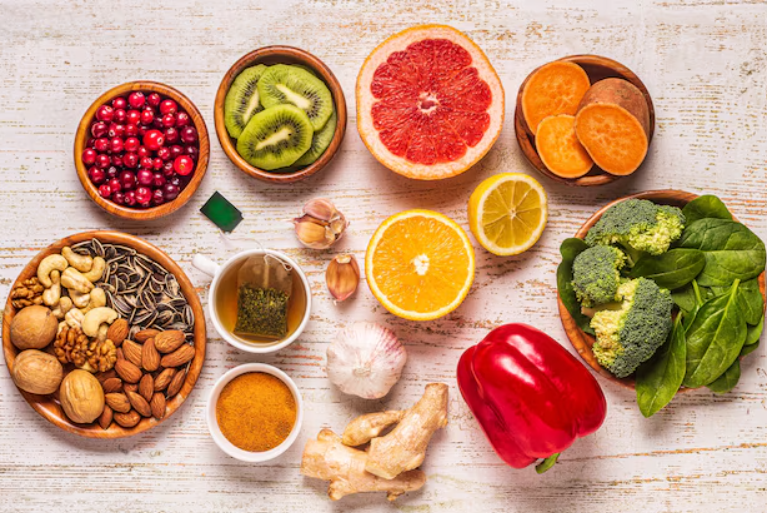Welcome to Organic Life: Your Trusted Source for Organic Information
Our website focuses on providing a wide array of organic information. Putting a lot of focus on environmental awareness and sustainability, we work hard to provide accurate and current information on a range of organic themes. To guarantee each fact’s validity and dependability, our team of professionals carefully investigates and confirms it. We have a plethora of information to give, whether your interests are in the newest developments in the organic business or the advantages of organic farming and their effects on human health.
Our Commitment to Organic Knowledge and Sustainability
We are committed to providing an abundance of educational and illuminating organic information. Our thorough research to compile the most relevant and trustworthy information demonstrates our dedication to promoting organic methods and goods. To meet the varied interests of our audience, we cover a broad variety of issues, from the nutritional advantages of eating organic food to the benefits of organic farming on biodiversity. Our goal is to provide people with information so they can make wise decisions about their lifestyles and help create a more sustainable future.
Reliability and Trust in Organic Information
Our website is a reliable source of knowledge when it comes to organic facts. We take great satisfaction in our methodical approach to research, making sure that each and every piece of information we provide is supported by reliable sources and empirical data. Our team of professionals is committed to using organic methods and is always up to speed on the most recent advancements in the industry. We offer an extensive database of organic facts to meet your requirements, whether you are a consumer trying to make better decisions, a farmer considering switching to organic agricultural practices, or a researcher searching for in-depth information. Our goal is to increase appreciation for the advantages of organic life by raising awareness of and understanding of organic principles.
The Rise of Organic Living: Health and Environmental Awareness
Growing awareness of the effects of decisions made on one’s health and the environment has led to a rise in the popularity of organic living and eating in recent years. The advantages of eating and living organically will be discussed in this article, along with the reasons why it is crucial to think about implementing them into our everyday routines.
Understanding Organic Food and Its Benefits
What is Organic Food?
Produce that is cultivated without the use of artificial fertilizers, pesticides, or genetically modified organisms (GMOs) is referred to as organic food. Additionally, neither growth hormones nor antibiotics are used while producing it in animals. Promoting biodiversity, healthy soil, and sustainable agricultural techniques are the main goals of organic farming practices.

Health Benefits of Organic Food
The possible health advantages of organic food are a major factor in consumer choice. Organic produce is produced without the use of synthetic pesticides, which have been connected to a number of health concerns, including cancer, hormone imbalances, and developmental abnormalities in children. Animals raised for organic meat and dairy products are free from growth hormones and antibiotics, which may be harmful to human health.
Additionally, organic food is thought to be more nutrient-dense. Research has shown that, when compared to conventionally farmed food, organic fruits and vegetables contain greater quantities of vitamins, minerals, and antioxidants. Furthermore, organic farming methods place a higher priority on soil health, which improves crop nutritional content.
Environmental Benefits of Organic Farming
Living and purchasing organically benefit the earth as well. By avoiding the use of synthetic pesticides and genetically modified organisms (GMOs), which may damage beneficial insects, birds, and other animals, organic agricultural techniques support biodiversity. In addition, organic farmers prioritize soil health by using methods like crop rotation and composting, which support soil fertility maintenance and minimize erosion.
Additionally, organic farming lowers greenhouse gas emissions and the use of fossil fuels. Synthetic herbicides and fertilizers are widely used in conventional agriculture, and they require large energy inputs. Selecting organic products helps preserve natural resources and lessen pollution of the air and water.
Supporting Local Communities Through Organic Choices
Selecting organic food also helps our community’s farmers and local businesses. Smaller farms, which are often more labor-intensive and need more experienced staff, are the sites of organic farming. Buying organic food contributes to the development and maintenance of regional economies and employment.
Furthermore, fair trade and ethical treatment of workers are prioritized in organic agricultural operations. Fair compensation, secure working conditions, and a ban on child labor are common criteria for organic certification. We are promoting the welfare of workers and farmers worldwide by endorsing organic farming.
The Impact of Choosing Organic
There are many advantages to eating and living organically for local communities, the environment, and our health. Selecting organic food may lower our exposure to dangerous chemicals, promote environmentally friendly agricultural methods, and improve the health of both farmers and laborers. A little but significant step in the direction of a healthier and more sustainable future is incorporating organic food and lifestyle into our everyday existence.
